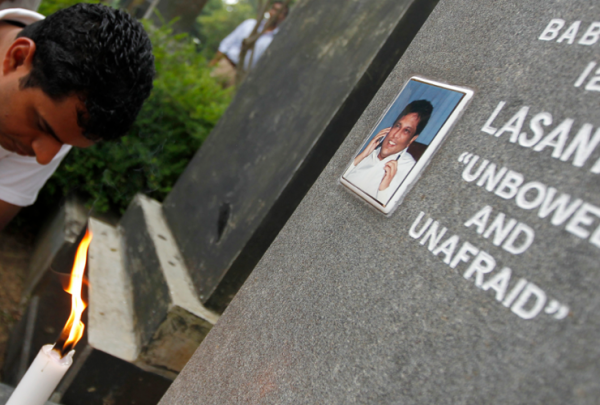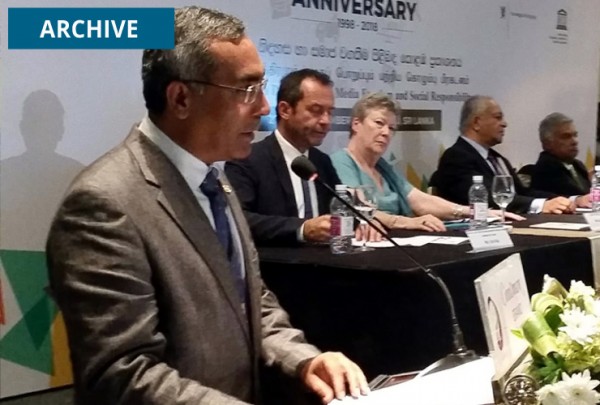Sri Lankan independent journalist and political analyst Prageeth Ekneliyagoda has been missing since the evening of 24 January, just two days before a snap presidential election, amidst growing concerns that he may have been abducted for political reasons.
As results for the election came in, on 27 January, state media declared incumbent President Mahinda Rajapaksa the victor.
Ekneliyagoda, who regularly contributes to the popular news outlet Lanka E News, disappeared after leaving the office for home at about 9.00 pm. According to an article on the Lanka E News website, a friend of Ekneliyagoda, who called him around 9.30 pm on the night he disappeared, said that Ekneliyagoda told him he was not going in the right direction. “I am not going towards Koswatte,” Ekneliyagoda reportedly told his friend over the telephone. A few minutes later, his telephone stopped functioning.
“We have not received any information about him since then,” Lal Wickrematunge, Chairman of The Sunday Leader, told IPI by telephone.
Wickrematunge said that he could not confirm whether Ekneliyagoda’s disappearance was in connection with his work as a journalist. But he added: “Lanka e News is critical of the government and Ekneliyagoda has been abducted before.”
On 27 August 2009, Ekneliyagoda was blindfolded, handcuffed and taken away by three individuals in a white van while on his way home in the late evening. He was taken to a house and kept blindfolded until the next morning. On the next day, one of the abductors told him they had made a mistake and drove him back to Colombo.
According to local news reports, people from the area in which Ekneliyagoda lives – Homagama – said they saw a white van without number plates parked close to the journalist’s house on the day he disappeared.
“We are extremely worried about the wellbeing of Prageeth Ekneliyagoda, given the circumstances of his disappearance, and the many unsolved murders of journalists in Sri Lanka in recent years,” said IPI Director David Dadge. “If this is an abduction, it is a grave violation of Prageeth Ekneliyagoda’s fundamental rights and will serve only to maintain the climate of fear that exists for journalists in the country.”
During the years of conflict between the Sri Lankan government and the LTTE similar abductions of journalists and political critics became so common that observers actually talked about Sri Lanka’s ‘white van syndrome’.
In November 2009, IPI participated, along with the International Federation of Journalists (IFJ) and International Media Support (IMS) in a fact-finding press freedom mission to Sri Lanka. From conversations with media professionals it became clear that although the approach of a snap presidential election had generated some perceived ‘breathing space’ for a media under attack, journalists in Sri Lanka continued to operate in a climate of fear.
<media 1118 – external-link-new-window>A report produced after the mission </media>recommended, among other things that there be “accountability for all past abuses committed against media personnel.”
Sri Lanka had witnessed an escalation of violence in the run-up to the 26 January elections.


